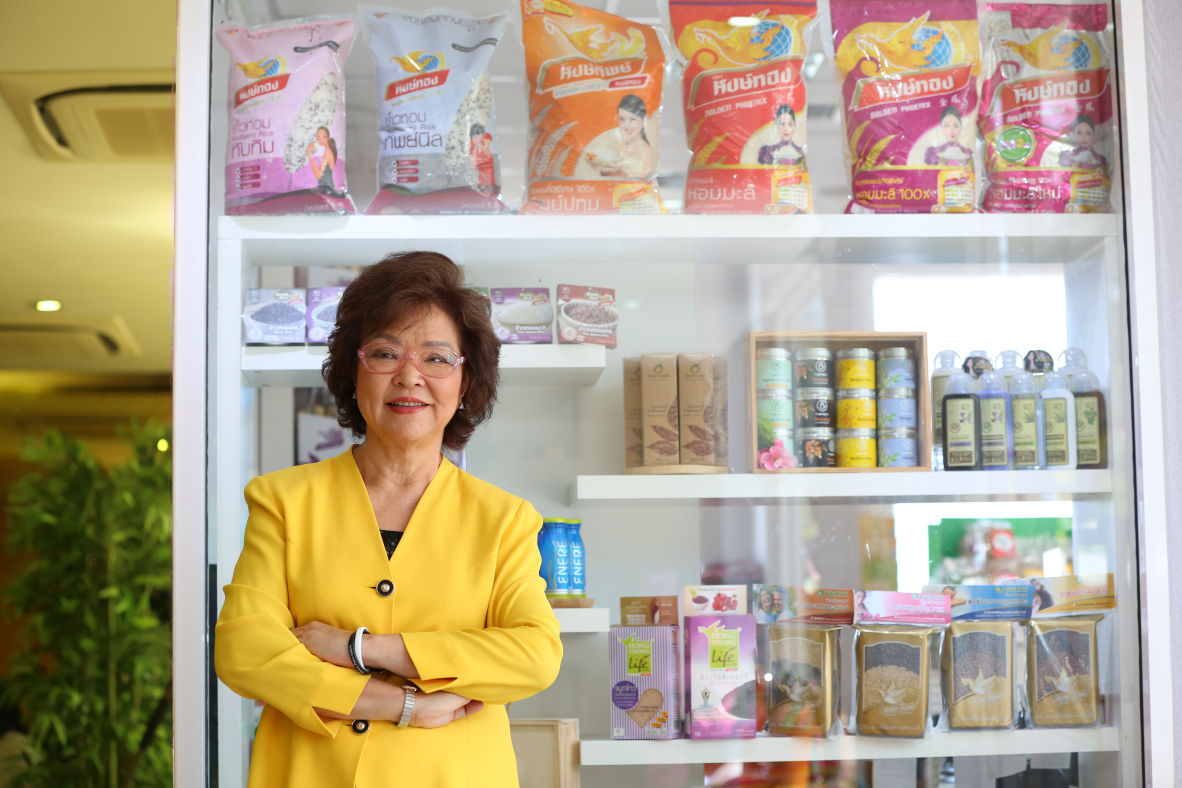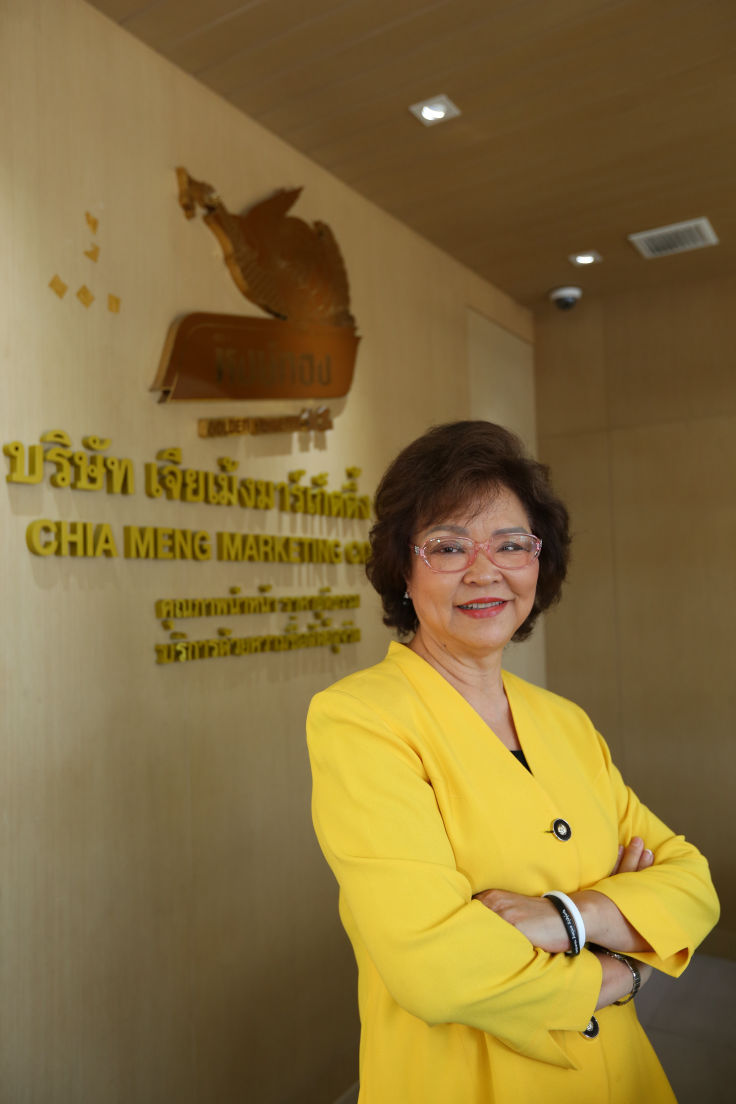Firm behind Hong Thong rice keen on introducing new rice products
for the global market
- By Ratchanee Sriwattanachai -

Sopan Manathanya
People may not have heard much of Chia Meng Marketing Co, but the company’s Hong Thong (Golden Phoenix) rice brand has been well-known by Thais for a long time.
The business started when Bualim Saekow, a Chinese man who came to Thailand as a refugee, began trading milled rice in Bangkok’s Sam Yan area in 1937. He went on to establish the Chia Meng Mill Limited Partnership, a rice milling operation.
After 31 years of strong growth, the name of the business was changed to Bangsue Chia Meng Rice Mill Co. In 1995, another company was formed under the name of Chia Meng Marketing Co to handle the milled rice trade.
Sopan Manathanya, managing director of Chia Meng Marketing Co, said the company holds the 4.0 industrial development concept in high regard. The business is ready to transform itself into a smart factory linking all operators in its supply chain within the next four to five years.
The company has already invested in a robotic system to boost production in one of its production line locations. Presently, the company has two factories, one located in Sri Sa Ket, and the other in Nonthaburi.
Initially, the company had used diesel-powered machines to mill rice, a rather inefficient process due to the length of time required to get the engine started. To cut down on time wastage, the company replaced diesel-powered machines with milling machines which used steam engines, speeding up the process significantly.
After the government set a benchmark of white rice as a 100% Thai export, the founder’s two sons — Kosol and Kamon Manathanya — worked to fine-tune their machines in order to produce this type of grains, a challenge they accomplished.
The company started exporting jasmine rice under the brand “Hong Thong”, which gained favourable reviews from foreign consumers.
Ms Sopan said the company’s achievement stems from its mindfulness and integrity in running a business while ensuring all stakeholders would reap benefits in a balanced and justifiable manner.
The stakeholders range farmers who produce the rice, consumers who support the products, employees who work hard to ensure business growth, trade partners who grow with the company, as well as shareholders and all supporters, she said.
In 1979, Chia Meng faced a severe business crisis when global rice prices fluctuated. This caused the government to prohibit exporting rice for a certain period of time.
During this time, the company’s earnings from rice exports dropped significantly, with a large decline in shipments to the Hong Kong market. The firm later had to negotiate with trade partners by offering benefits until they decided to buy rice from the company again, Ms Sopan said.
In the food industry, a lot of new food chains have comp up, including those serving Japanese and Italian food, which has led to a decline in rice consumption by Thais.

Sopan Manathanya
In the past, Thai people ate 100 kilogramme of rice per person per year but now the figure has dropped to 70-80 kg, Ms Sopan said, adding that the urban population is consuming even less at 55 kg per person a year.
In the future, Thais might eat only 50kg of rice per person a year, as opposed to the westerners who are likely to consume 12kg of rice per person a year, up from the current 8-9kg, as Europeans now realise that carbohydrate from rice is better than from other foods.
The company, she said, needs to ramp up campaigns to promote the health benefits of Thai rice, adding it is important to highlight that rice carbs are easier to digest than those from other carbohydrate-based foods and calories from rice are not as high as those from bread.
Chia Meng continues to invest into research and development in order to introduce new rice products to compete with rice producers from neighbouring countries, most of which sell rice at cheaper prices than Thailand.
“In the future, we may develop rice products to target each segment,” said Ms Sopan. “For example, there will be rice for the elderly and those in generations X or Y. The company also plans to expand rice business to other products, such as cosmetics”.
In the next five years, Chia Meng’s business is projected to notch tens of billions of baht in earnings, she added.

Tag

Tag

Tag

Tag

Tag

Tag
SHARE THIS PAGE!